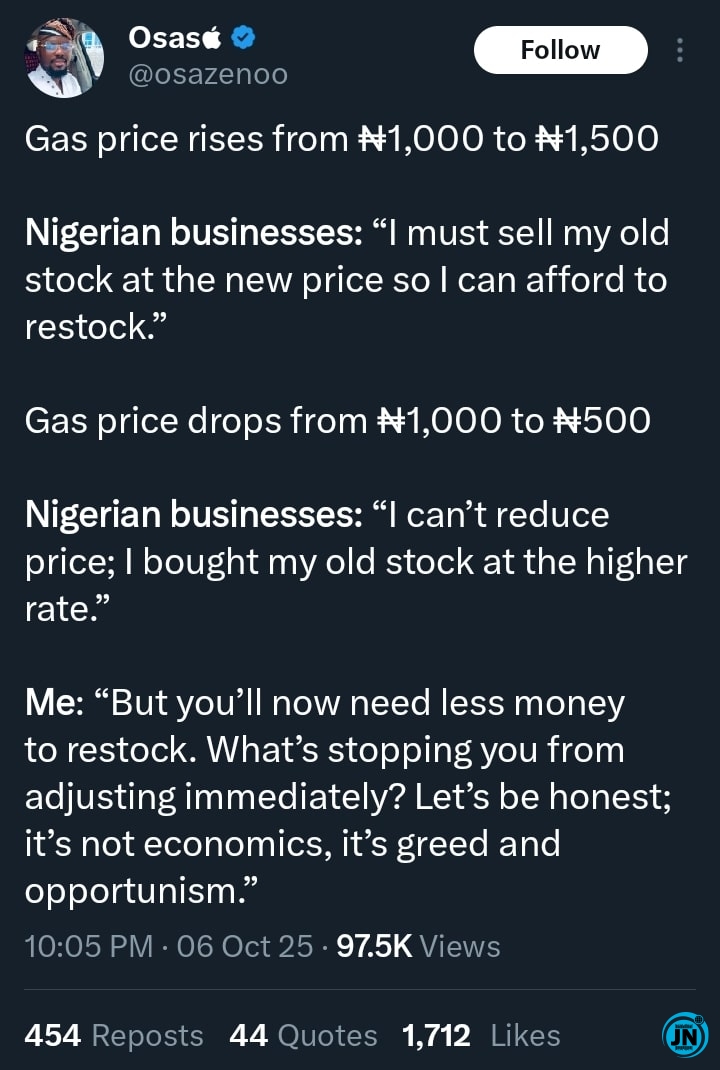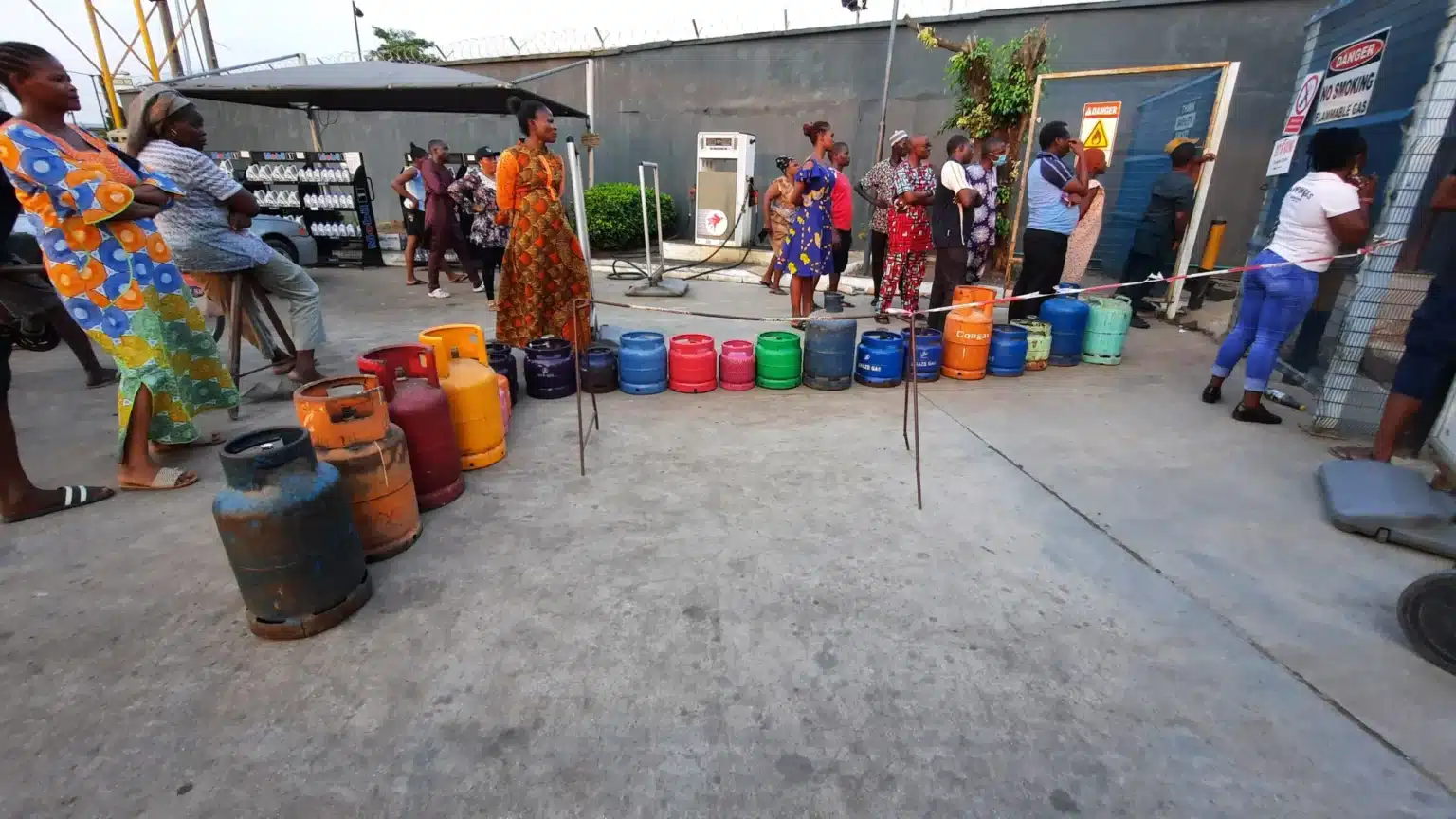A Nigerian man has sparked heated discussions on social media after criticizing cooking gas sellers for allegedly prioritizing greed over fairness in their pricing practices. The post has since gone viral, drawing comments from a wide range of Nigerians, including consumers frustrated with price hikes and others defending small business owners navigating volatile markets.
Identified online as Osas, the man used X (formerly Twitter) to voice his frustrations, questioning why gas sellers are quick to raise prices whenever costs increase, yet show reluctance to lower them when market prices drop. According to him, this inconsistent approach exposes a tendency to exploit consumers rather than reflect real economic considerations.
How cooking gas sellers react to price fluctuations
Osas illustrated his point with a relatable example. He explained that when the price of cooking gas rises from ₦1,000 to ₦1,500, sellers often justify the hike by claiming, “I must sell my old stock at the new price so I can afford to restock.” This logic, he argued, conveniently benefits sellers at the expense of consumers, creating an impression of opportunism rather than necessity.
Conversely, when the price falls from ₦1,000 to ₦500, Osas observed that the same sellers rarely pass the savings to consumers, often saying, “I can’t reduce the price; I bought my old stock at the higher rate.” This, according to him, exposes a double standard where sellers capitalize on market increases but delay or avoid passing benefits to customers when prices decline.
Expressing his disappointment, Osas concluded that the behavior of such gas sellers is motivated more by personal profit than by market logic or economic principles. He wrote: “But you’ll now need less money to restock. What’s stopping you from adjusting immediately? Let’s be honest; it’s not economics, it’s greed and opportunism.”

The post quickly gained traction online, attracting mixed reactions. Many Nigerians resonated with Osas’ criticism, agreeing that some business owners exploit consumers by maintaining inflated prices despite falling market costs. Others argued that fluctuating expenses and unpredictable market conditions make it difficult for sellers to adjust prices constantly.

Social media reactions
Bambz commented: “Honestly speaking, there’s one Alfa in my area that sells cooking gas, he sells for 1,200 per kg despite pressure from other sellers to increase the price. Some Nigerians just like taking advantage of any opportunity that arises.”
Francis Kotobo added: “If you increase the price of old stock to current price, you should also reduce your prices when price falls, but to businessmen it makes no economic sense. My concern is that those who criticise businessmen won’t do the same if the table turns. It’s easier said than done. IRE O.”
O.S.A weighed in: “That’s not how business works. You only talked about the businesses’ income, what about their expenses? Expenses play a role too. If you sell your product cheap but your expenditure is high, then you need to increase your income. Everything is just so expensive, not just gas.”
Herpi added another perspective: “When I buy #10 and sell #12, going to restock, cost price is now #15. Where will I get the additional #3 to add, that’s if I included my profit? Now, how do I stay in business if this is my reality?”
The debate continues online, highlighting the tension between consumers seeking fair prices and business owners navigating rising costs and economic instability. Many Nigerians are calling for more transparency in pricing, while some urge understanding of the challenges small-scale sellers face in maintaining profitability amidst fluctuating market conditions.